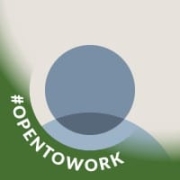

Find out what your peers are saying about Informatica, Palantir, Oracle and others in Data Management Platforms (DMP).


Informatica Intelligent Data Management Cloud (IDMC) is a robust platform used by banks, financial institutions, and health sector organizations for data management, governance, and compliance.
IDMC provides comprehensive tools for data discovery, profiling, masking, and transformation. It supports Salesforce integration, real-time data streaming, and scalable data management solutions. Health organizations manage national product catalogs while financial entities focus on data protection and regulatory compliance. Its intuitive interface, flexible features, and robust tools make it valuable across sectors, though enhancements in data integration and human workflow are being sought.
What are the most important features?
What benefits and ROI should be considered?
Banks and financial institutions use IDMC for data masking, transformation, and compliance, while health sector organizations leverage it for national product catalogs. Industry applications focus on automating business processes, centralizing data, and managing data catalogs to meet regulatory demands and ensure data protection.
Microsoft Master Data Services (MDS) is an SQL server solution for master data. MDS enables users to organize and manage a business's master set of data into models while also creating rules for updating the data and control over who can edit it. In addition, the master dataset can be shared with other people in your organization through Excel.
In Master Data Services, you create a model, which is the highest level container in the structure of your master data. This model can then be used to group similar data. Within the model, there can be one or more entities that are similar to a table. Those entities contain members that are the data records. For example, your model can include commodities such as style, color, and product if you manage online product data. The color entity may contain members for various colors. Models may also have attributes that contain values that describe entity members and can be defined within the entities.
There are also attributes that contain values that help describe entities within entity members. There are two different types of attributes:
Features of Microsoft MDS
Microsoft MDS offers a variety of features that provide a central management of master data, while accommodating access to editors and other consumers of the information. These features include:
Reviews from Real Users
For those managing large quantities of master data, Microsoft MDS is a solution of choice for a number of reasons. Two of those are its ability to empower everyone to interact with the BI system as well as its integration with Azure active directory.
Satyam S., a senior software developer at a manufacturing company, notes, "Enables non-technical people to directly interact with the BI system."
An individual contributor at a pharma/biotech company writes, "One of the main features I have found useful is the integration with Azure active directory."
We monitor all Data Management Platforms (DMP) reviews to prevent fraudulent reviews and keep review quality high. We do not post reviews by company employees or direct competitors. We validate each review for authenticity via cross-reference with LinkedIn, and personal follow-up with the reviewer when necessary.